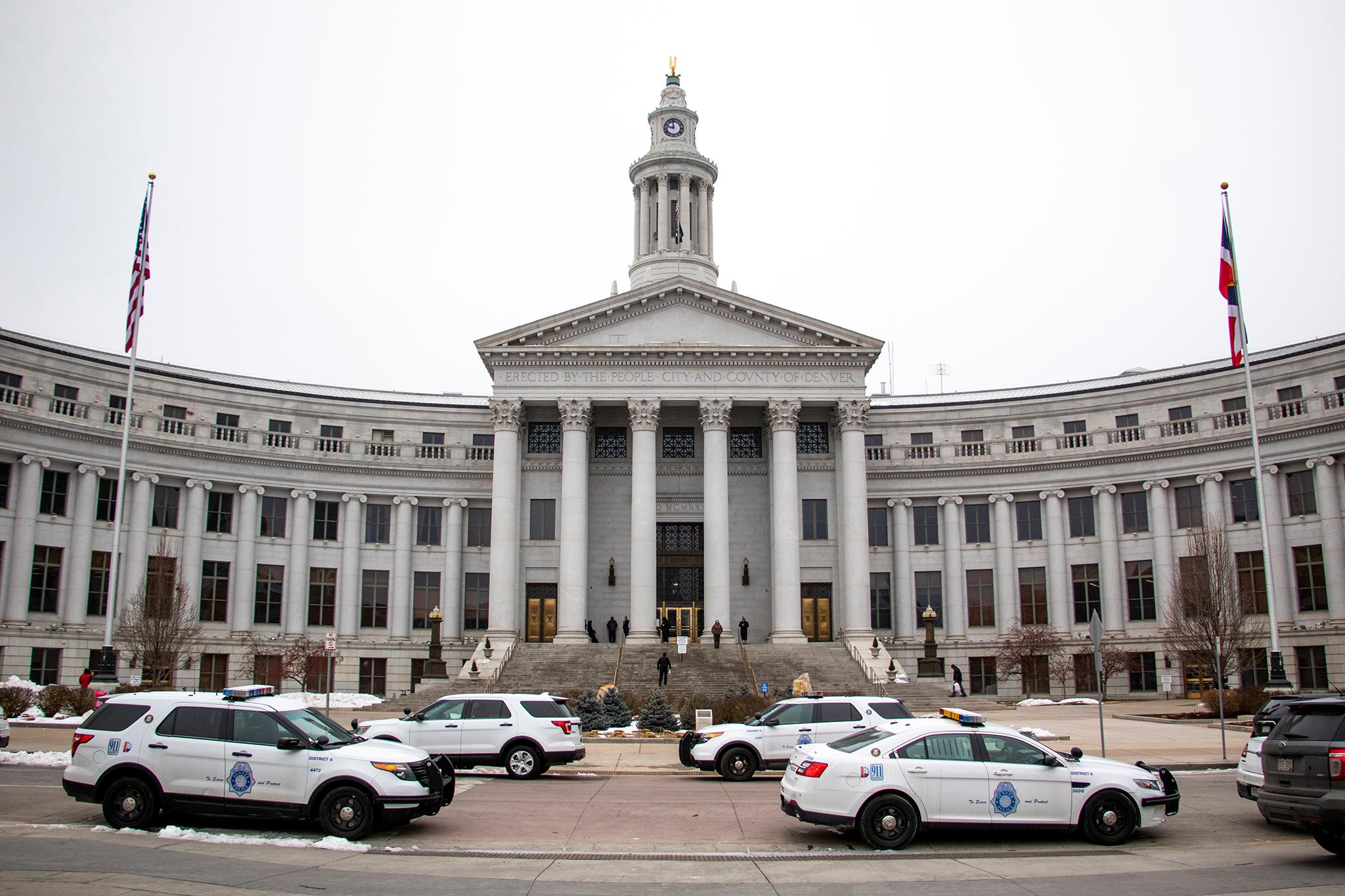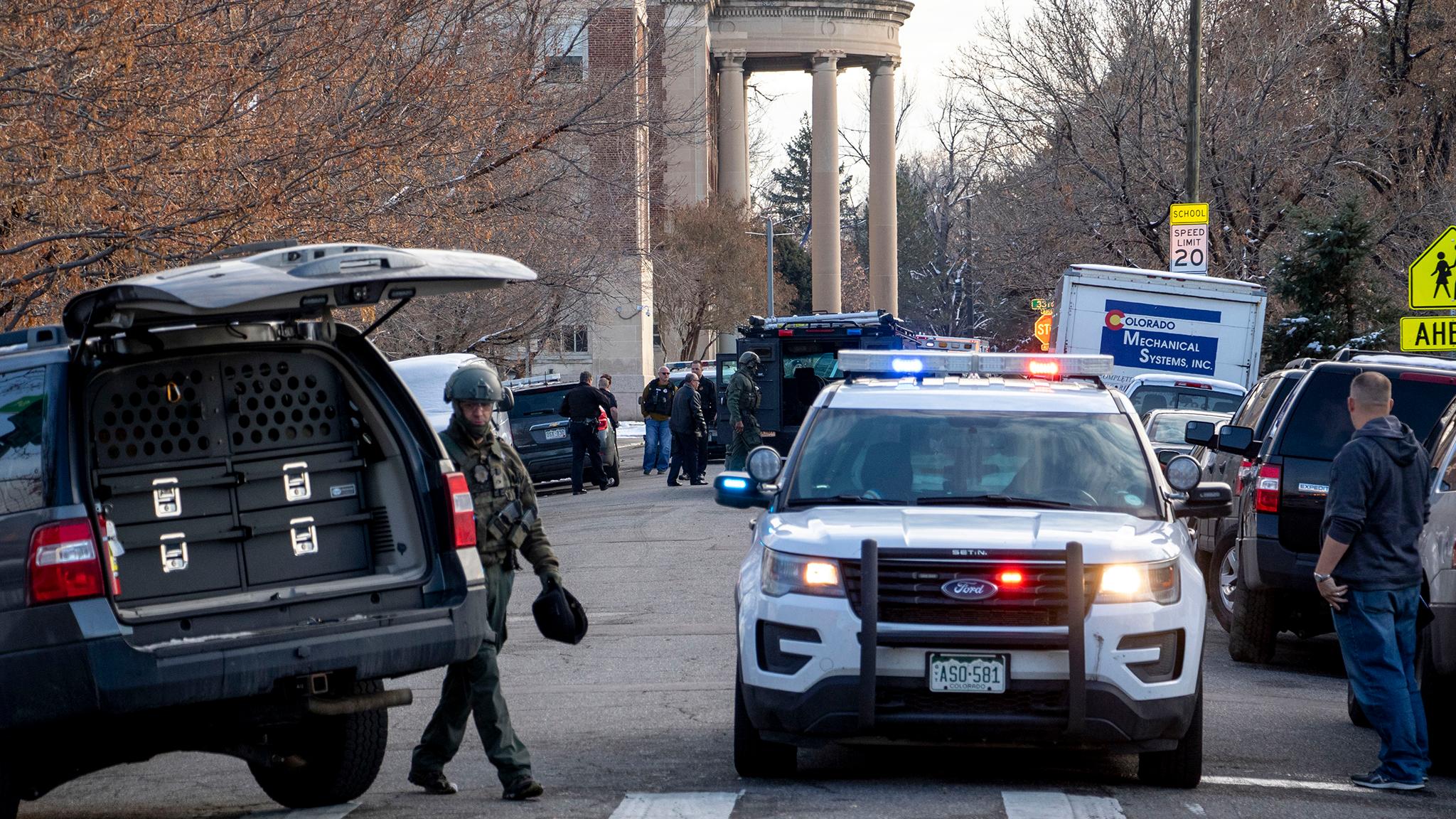As of Jan. 1, the state's red flag law is in effect.
The law allows family members to ask a judge for what's called an extreme risk protection order, which removes guns from someone that family member believes is a danger to themselves or others. Cops and household members can also request this protective order. Denver Police Division Chief of Investigations Joe Montoya admits the law makes some of his officers nervous but said the department is equipped and prepared to enforce it. And he thinks that could happen soon.
"It could happen as early as 12:01 this morning, to be honest with you," Montoya said Tuesday.
The department's domestic violence unit, which consists of a lieutenant, two sergeants and three detectives, will lead the department's red flag law enforcement. Montoya said the three detectives will be responsible for enforcing policies created with feedback from the City Attorney's Office, the Denver District Attorney's Office and the courts.
The new law didn't necessarily require additional training.
"I think just a thorough understanding of how the law reads and what our policy states is really the only training that we can actually give them," Montoya said. "Some of it aligns with what they do on domestic violence prevention. We look for indicators of potential violence down the road."
"To some extent, it's the same thing," Montoya added. "Other than taking weapons, we do want to help these individuals, get them the resources they need to move forward with their lives."

Montoya said their hope is people will turn over guns without incident. Failing to do so will result in a misdemeanor charge.
If a person facing an extreme risk protection order doesn't show up for their hearing, it will be up to Denver police to notify the person. Montoya is aware that this, as well as gun confiscation, is where things could potentially get ugly, since it involves "taking something that people see as a right." But like many situations, the officer's goal will be to prevent things from getting out of hand.
"We are very adept at tactical situations," Montoya said. "We've handled many high-profile tactical incidents. I think our SWAT teams gets called out a couple of times a month on these types of incident."
While the domestic violence unit will oversee the law's enforcement, Montoya said it's also possible for patrol officers to recommend an extreme risk protection petition if they come across someone they think would need it. The department's policy would be for the patrol officer to contact one of the sergeants on the domestic violence unit to begin the process. If the department files an order, it will be represented by the City Attorney's Office.
People who come to the department seeking an extreme risk protection petition for someone will also be linked up with one of the three detectives, whom Montoya said could then walk the person through the process.
The Denver Probate Court -- the only separate probate court in the state -- will host the hearings for people in Denver. Court executive Amber Roth said this is because the court has exclusive jurisdiction over matters related to people who are mentally ill. For efficiency, the probate, county and district courts in Denver agreed to allow the court to oversee these hearings since they may directly involve people who are mentally ill.
The police department didn't have the money to create a separate extreme risk protection order unit, but that could change, depending on how many requests they get.
The department is not really sure how many requests it will get. The legislature estimated there would be 170 petitions filed annually, with 95 percent of the petitions granted.

Montoya said the department is approaching this year as a pilot. He personally spoke with a San Diego Police Department lieutenant who oversees their extreme risk protection order office to learn more, and got information about Seattle's program.
"Our thought process was that we wanted to keep it specialized and we wanted to have a core of individuals that have expertise in the law," Montoya said.
Last month, the Colorado Judicial Branch websites published several documents explaining how someone can apply for an extreme risk protection order.
It includes an instruction list, explaining fees, forms and all the steps required to apply for an order.
Jon Sarché, a spokesperson for the state judicial department, said the documents are there to help make things more efficient for everyone.
"We are not expecting a huge number," Sarché said. "We're not expecting the flood gates to open on January first."
Colorado now joins 15 other states and the District of Columbia as places with some version of this law. The law in Colorado was proposed in response to the death of Douglas County Sheriff's Deputy Zackari Parrish, who was killed by a mentally ill man in 2017.
While the death of a law enforcement officer sparked its proposal, not all cops support the law. Law enforcement officers in several counties said they wouldn't enforce it.
Montoya notes this law does put them in a spot they're not typically in: They're enforcing civil law, not criminal law. He said he believes the law was put in place for the right intentions, which is to keep people safe.
"You may never know that this law prevented a major disaster or incident or active shooting incident in the future," Montoya said. "If it does, then it's well worth it."











